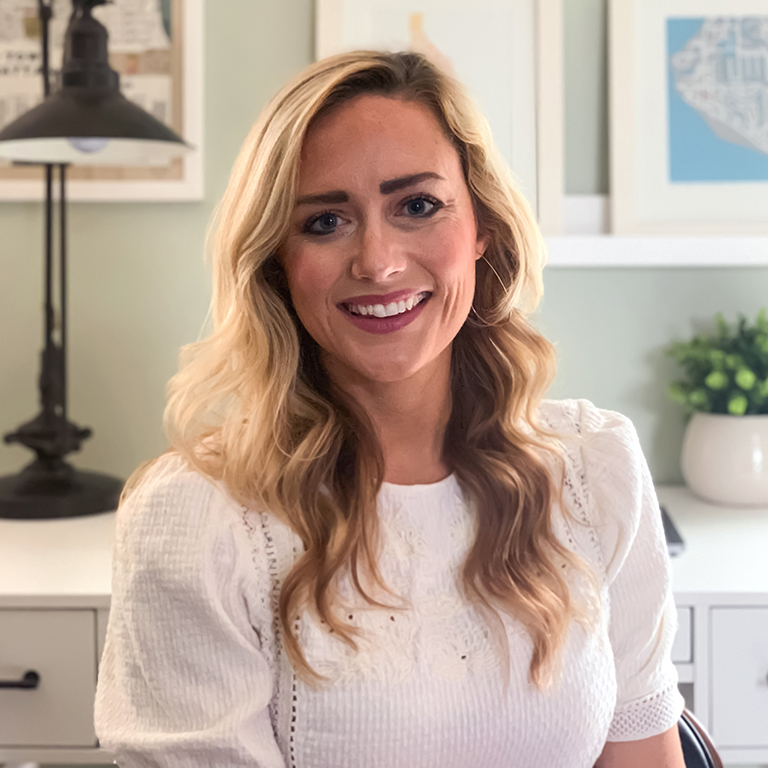
Ever wonder what to expect when you start working with a wealth management firm?
On our latest podcast episode, I sat down with Kyle Cipperley and Joe Dylla to walk through the prospect review process and share our financial recommendations for an iconic sitcom couple: Jim and Pam Halpert from “The Office.”
You can gain insight into our process by reading a recap of the mock financial review below, watching the full episode on YouTube or Spotify, or listening on your favorite podcast app!
Building a balance sheet
Joe: So, we’ve got Jim and Pam Halpert [Adam laughs] coming to First National Wealth Management today. They’re a high-earning couple. Jim’s making $160,000 a year; Pam’s got $190,000 a year in salary. They’re mid-forties. Two kids, both still in school, so living at home.
They’ve kind of just hit the point where they’re realizing that all of this has gotten bigger than they’re comfortable with. They’re in a good spot, but they are just looking to make sure that they’re doing all the right things.
Adam: At this point, we’ve had one meeting with Jim and Pam. That meeting went really well, so we decided to take the next step. And for us, that means we’re going to look at some additional information that they can provide — things like investment account statements, retirement account balances, cash on hand, insurance, any information about debt, estate planning, tax returns, etc.
We take all that information and put it through our review process, and we start building them a balance sheet. That balance sheet is really, really critical for us because that’s what we use as the foundation for all of our future advice. But while all that’s happening, Kyle and his team are taking a deep dive into the investments for Jim and Pam. So, Kyle, what are you looking for when you review those statements?
Kyle: We’re really trying to find the answer to about three or four different questions: what do they own, where and how do they own it, how much is it costing them, and — this is the hardest part — how have they done?
Adam: Let’s pull up Jim and Pam’s balance sheet here and go through what we find.

If we start in the top left corner, this gives us a net worth summary. What’s happening here is it’s breaking out what Jim and Pam own, who owns it, and what they owe. From an asset standpoint, they have $1.686 million. That’s awesome! Good for them. Liabilities — they have $300,000 there. So, assets minus liabilities gives you a net worth of $1.386 million. Jim and Pam are doing great.
Joe: Selling lots of paper!
Adam: [Chuckles] That’s right. In the top right-hand corner, this gives you a graphical representation of the makeup of their assets.

So you can see, right now, Jim and Pam have about 2% of their assets in cash or cash alternatives. They’ve got just under 6% in taxable investments. Qualified retirement accounts — so your 401(k), your IRA — that is just over 50% of their assets. And, lastly, they’ve got real estate making up about 41% of their assets.
In the middle section, we’ve got a more detailed breakout of the assets and liabilities.

They’ve got joint checking, joint savings, and a joint agency. Jim has a 401(k) at Athlead. Then, he has a larger 401(k) from Dunder Mifflin and a small IRA. Pam also has a Dunder Mifflin 401(k), which I think we all know is where Jim and Pam met.
Pam has a smaller 401(k) from Michael Scott Paper Co. and an IRA. Then, they have that real estate; the current value is $700,000, and that is their primary residence. We mentioned that $300,000 liability — that is their mortgage. So, a $300,000 mortgage on a $700,000 house, which gives them quite a bit of equity. And for the purposes of this discussion, their mortgage rate is 2.25%.
Recommendations
Adam: Kyle, I’ll start with you. This is a question we get quite often from all different ages: “Should I pay off my mortgage, or should I use that extra money to invest or for other life things?”
Kyle: I’d tell them to think about it in two different ways. There’s the spreadsheet answer, which is, “Your rate’s 2.25%. Interest rates are a lot higher right now. Therefore, it’s not ideal to pay off that mortgage early because you’re better off leaving that cash invested and earning a higher rate than what your mortgage charges in interest.”
I’ve softened up a little bit on that view over the years. In fact, one of your former podcast guests, Morgan Housel, had a low-rate mortgage himself and decided to pay it off. And this is somebody who knows how to do math and looks at spreadsheets, but he said paying off that mortgage early was the worst financial decision he’s ever made but the best money decision he’s ever made. It’s the idea that you don’t owe anything — the sleep-well-at-night factor.
What we find is that a lot of people have very strong views on this topic, so we just have a conversation about which side they lean on. Do they prefer the spreadsheet analysis, or are they more of the peace of mind folks? With Jim and Pam, they decided to leave the mortgage outstanding because of the super low rate.
Adam: Next is life insurance. Each of them have a term policy; Jim has a death benefit of $300,000, and Pam has a death benefit of $500,000. Joe, based on where their incomes are today and what they have going on with their life, how do you feel about these amounts?
Joe: I’m guessing that Jim and Pam purchased these several years ago when they were making significantly less money. A general rule of thumb is to have insurance coverage that’s probably 10 to 12 times your earnings. Given the fact that they’ve got a sizable mortgage debt and two minor children if anything were to happen to them, it probably makes sense to at least look into increasing that term coverage to closer to 10.
Adam: Now, Jim and Pam currently do not have a trust or estate plan in place. Joe, what would you expect of Jim and Pam at this point?
Joe: I don’t think they have to do a lot of super-sophisticated estate planning, but they should definitely have the basics covered. And they don’t right now. So, to me, that means they both need financial and healthcare powers of attorney so they have somebody named to take over and act on their behalf.
They need a basic will of some sort. As parents of minor children, that gives them the ability to name someone to take care of their children in the event that something would happen to both of them. A revocable trust could also make some sense for them. They’re doing well, but they need to have something — and right now they have nothing.
Next steps in the financial review process
Adam: We’ve had exactly one meeting with Jim and Pam, and we’re just getting to know each other. So, these recommendations will likely change when we need to prioritize things. Then, we have to marry those recommendations up with their goals.
What does this next phase look like for us and for Jim and Pam? Basically, now that we have all the analysis done, Jim and Pam will come back to our office, and we’ll present them with what we’ve found. We’ll walk through their balance sheet to make sure we’ve got the right assumptions in there and that that’s correct. Then, Kyle and his team will go through the investments and what they’ve found.
Then, we’ll go through an exercise to talk about goals and recommendations to see what we want to attack first. Assuming that works for everybody, we start the engagement and go. And we meet on a periodic basis, however often they want to meet. We’ve got clients in 48 states, so some of these are done via Zoom. Some clients want to meet with us quarterly. For others, every two years is fine.
But then, you know, Jim and Pam’s lives are going to change. The kids are going to go to college, Jim and Pam are going to move into a different phase, they’re going to talk about downsizing or buying a second home — and our job is to be here and help them walk through those changes thoughtfully.
If you’re interested in working with First National Wealth Management yourself, send me a note! And, dive deeper into our financial recommendations by watching the episode “Your Money Questions Answered”:




